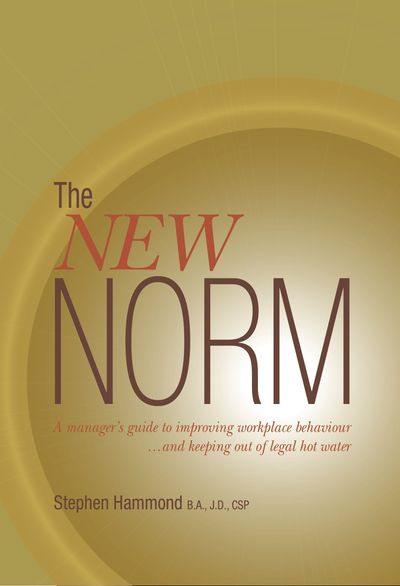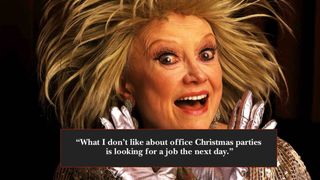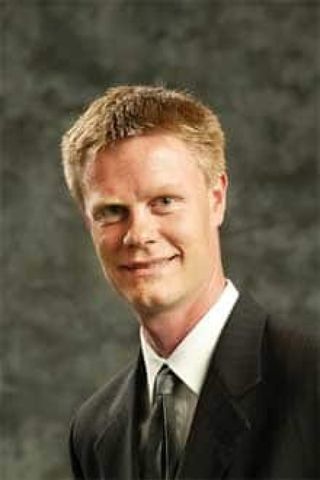Chapter twenty two
THE NEW NORM can handle his drinking
When I was twenty-four, I worked in the same field as my mother. Even though she was a member of the Manitoba Legislature and I was executive director of the same political party, my mother felt she had to look out for her son…in particular, after I’d had a couple drinks.
Although I don’t recall drinking too much at work-related functions, I do remember that after a few drinks, I’d lose my inhibitions. That’s when my mom would caution me about alcohol.
I think I could learn from the late comedian, Phyllis Diller, who said,
“What I don’t like about office Christmas parties is looking for a job the next day.”
I didn’t lose a job over drinking (Thanks, Mom), and luckily for me, I learned enough to figure out that I needed to watch how much I drank at work-related functions, for fear of doing something stupid. Not everyone has learned that lesson.
Back when I was younger, I could have benefited from a course, like my own Respectful Workplace online course, where I spell out how behaviours like drinking – even outside work – can have a negative impact on your career (I know, ironic, right??).
On July 3, 2014, the head of the Royal Canadian Navy, Vice Admiral Mark Norman, issued a statement to all sailors explaining why he’d sent one of Canada’s military ships home. He wrote, “It is with great disappointment that I must now signal why I took the difficult decision to return HMCS Whitehorse to Esquimalt from Exercise RIMPAC 2014, following three incidents of personal misconduct ashore.”
RIMPAC, or the Rim of the Pacific Exercise, is the largest international warfare exercise; it takes place every other summer. In 2014, twenty-two countries, forty-nine ships, six submarines and about 25,000 naval personnel – including 1,000 Canadians – took part in the event around Hawaii and off the coast of California. Calling the Whitehorse back from San Diego, California, to its home base of Esquimalt in Greater Victoria was a very big deal.
Seven months later, we discovered part of the problem: booze. Two sailors received fines and other discipline for drunken behaviour. A third faced a court martial for drunkenness and sexual assault. We also found out that a lieutenant commander (i.e. second in command) was charged by the Canadian Forces National Investigation Service with drunkenness and disobedience while aboard another vessel, the HMCS Calgary, also taking part in RIMPAC.
These embarrassing behaviours prompted the Canadian Navy to change its policy. As Vice Admiral Norman announced, “The consumption of alcohol will be prohibited while ships are at sea.”
When it comes to the perils of drinking, I’m reminded of something I read while in St. John’s Newfoundland in late September 2012: an article reporting that Premier Christy Clark of B.C. had accepted the resignation of her chief of staff, Ken Boessenkool.
I was surprised that a mere eight months after this political heavy-weight from Prime Minister Stephen Harper’s office came to Victoria to save Clark’s sagging poll numbers, he was gone. But given that I was in St. John’s to deliver a speech about harassment and discrimination, when I read that the resignation was over “an incident of concern,” I had a pretty good idea what the incident was about.
Unfortunately for the citizens of B.C., authorities issued virtually no explanation, and for some bizarre reason, not so much as a period or comma was written down about the incident, even though there was a full internal investigation involving the provincial Public Service Agency.
What we do know is that Boessenkool was attending an annual golf tournament that included a number of political and media folk.
Presumably Boessenkool joined others in having some alcoholic beverages (perhaps a little, perhaps a lot, but we don’t know since nothing was reported) and while most people left after the tournament, Boessenkool joined others on a chartered bus (a responsible act) to a local bar in downtown Victoria. It was at that bar where Boessenkool effectively lost his job due to the “incident of concern” involving a female server.
As a golfer, I know to be wary when men, golf and booze are combined…and if you really want trouble, add motorized golf carts.
The OLD NORM
- likes to have a few drinks at work-related functions…perhaps a few too many drinks.
- would never drink and drive because he knows alcohol impacts his driving, but doesn’t use that same logic when it comes to losing inhibitions at work functions.
- after a few drinks, allows his hands to wander, or makes “humourous” comments to people with whom he works.
- if he keeps his job, repeats the same behaviour at other work-related functions.
The NEW NORM
- understands the impact alcohol has on him.
- might like to drink at work-related functions, but has a limit and won’t exceed that.
- won’t get goaded into having too many drinks when colleagues say, “Come on, just one more drink” (read with a slur).
- will take a colleague aside when she realizes she’s had too much and is about to make a fool of herself. (Her colleague should thank her the next day).
Suggestions for the New Norm:
01
Know yourself. When it comes to alcohol, people act differently. When drinking to excess (and that doesn’t have to mean blottoed), some people get loud, others quiet and yet others fall asleep. But there are a certain number of people who do really foolish and in some cases illegal things. We all know that alcohol is a drug. It’s a legal drug allowed to be consumed in many places, but nonetheless, a powerful drug. If you don’t drink, you have no worries. But if you sometimes drink to excess, then set an amount and stick to it – for sure at work-related functions.
02
Limit drinking. At work-related functions, it’s not uncommon, nor is it being a scrooge, to put a limit on how much alcohol each person can have. Even if there is a limit, designate someone to watch over things. Some crafty people know to get drink tickets off those who don’t use their allotment.
03
Don’t have booze at work-related social functions. Alcohol doesn’t have to be present at work-related functions. Each workplace can decide, perhaps based on past behaviour. And keep in mind that for sobriety and religious reasons, making alcohol available might prevent some people from turning up.
This chapter lets you know that alcohol and other substances, can have a negative impact on your job, sometimes due to a toxic workplace.
For other examples where outside activities can lead to claims of racial and sexual harassment, consider reading
Chapter 19: The New Norm knows misuse of social media even outside of work is risky
Purchase a copy of The New Norm, or if you think all your supervisors and managers, could learn many valuable lessons about creating a respectful workplace, free of harassment, bullying and discrimination, you can get volume discounts.
What one reader has to say about Stephen’s book, The New Norm
“When I got up early this morning and headed for my computer here at home, I told myself, ‘Just skim read a few sections of Stephen’s book and get a note back to him.’ I couldn’t do that, Stephen. I read it all – every word. You have taken too long to write this book – Employees and Employers in Canada need to read this.
Stephen will capture your attention in highlighting up to date and interesting headlines which we all have an opportunity to learn from. If you believe you can simply skim read this book, think again! The mesmerizing case studies will leave you yearning to learn the conclusion as any great author should do for their readers. Sincere attention to the messages here can only result in best practices within Canadian workplaces.”
Melinda Heidsma
Executive Director, AiMHi, Prince George Association for Community Living

Respectful Workplace Online Training Course
If you, your employees or your managers want more information,
sign up for my new online training course:
The Respectful Workplace in Canada.
With 10 modules of useful, relevant and current information,
this course can help everyone at your workplace.
This may be the best online harassment training your people will get.
Stephen Hammond is a lawyer turned speaker and consultant in the field of harassment, sexual harassment, bullying and discrimination at work.
The New Norm is Stephen’s third book.
Here’s more information about Stephen.





